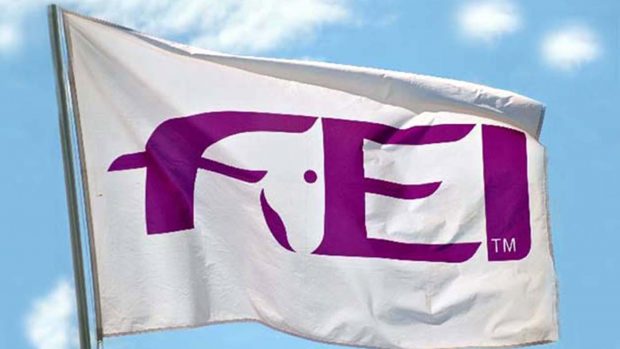The German show jumping team stand to lose their gold medal after the International Equestrian Federation (FEI) disqualified Ludger Beerbaum’s mount, Goldfever 3, for failing a dope test in Athens.
The FEI has confirmed “there had been a breach of [their] general regulations relating to the presence of the prohibited substance Betamethasone in the horse Goldfever 3.”
Goldfever 3 tested positive to the anti-inflammatory drug betamethasone in Athens and Beerbaum admitted that he had treated his horse with an ointment to cure a skin irritation. The FEI Judicial Committee accepted that the medication was a “legitimate treatment” and that Beerbaum had no malicious intent to enhance performance when he administered it.
The committee found “no evidence that the [Beerbaum] had either risked the horse’s welfare or gained any advantage during the 2004 Olympic Games in Athens.” However, he had omitted to follow the appropriate procedure required by the federation’s veterinary regulations, leaving the FEI “no other option than to disqualify the horse Goldfever 3 from all competitions at the Olympic Games Athens 2004.” Beerbaum was also fined CHF1,500 (£682) and is liable to pay another CHF750 (£341) for the costs of analysing the B-sample.
Following the FEI’s decision, Beerbaum and the German team now stand to lose their Olympic gold medal. The process, however, is far from immediate. Beerbaum has 30 days to appeal against the FEI ruling to the Court of Arbitration of Sport. Only if he loses will the International Olympic Committee strip Germany of its gold medal and give it to the Americans, who took silver in Athens. Sweden would then move up to take the silver, with Germany demoted to Bronze.
In contrast, Beerbaum’s compatriot Bettina Hoy was cleared of any wrongdoing, after her mount Ringwood Cockatoo tested positive to the banned substance hydroxy-diphenhydramine.
The FEI stated that a vet from the Olympic Veterinarian Clinic had given Hoy and the German Team vet verbal permission to use a cream containing the drug to treat lumps on Ringwood Cockatoo’s back. Although the proper procedure would have required Hoy and the vet to declare the treatment in writing, the FEI Judicial Committee judged that “the consultation contributed to or facilitated the use of the cream in question and, as a consequence, the finding of the prohibited substance in Ringwood Cockatoo.”
The committee also found that the Olympic Veterinarian Clinic had failed to provide “appropriate information” on the cream to Hoy and the German vet. As a result, no sanction is to be taken against Hoy.
Reinhardt Wendt, managing director of the German Olympic Equestrian Committee, says: “I am relieved that both cases were not judged to be doping. I am deeply disappointed that Ludger Beerbaum was disqualified despite this. This means he and his team members must give their gold medal back. As for Bettina Hoy and her team, I am pleased that their personal innocence was fully recognised.”
The FEI committee pointed out that the recent doping cases highlighted the urgent need for the Federation to “revisit its entire medication policy” and clarify the distinction between legitimate treatments and doping — a task that the newly-appointed FEI anti-doping task force is expected to undertake in the next six months.



